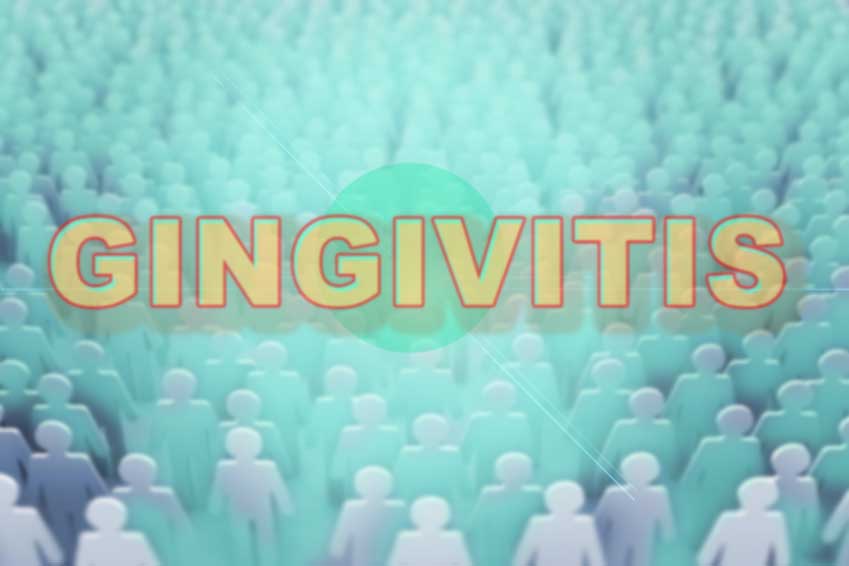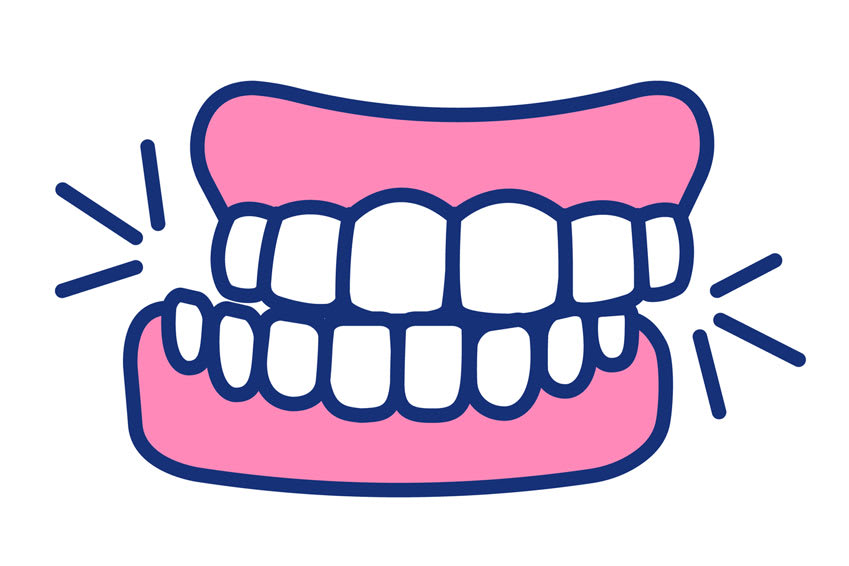There’s a common health condition that many people don’t know they have. It’s gingivitis, also known as gum disease.
The statistics are sobering. According to a study reported by the Centers for Disease Control…
- 47.2% of adults 30 years and older have some form of periodontal disease.
- Periodontal disease increases with age, 70.1% of adults 65 years and older have periodontal disease.
- Chronic gingivitis affects 90% of Americans in some form or another.
Here’s a great description of the difference between gingivitis and periodontal disease, from the vlogger known as Teeth Talk Girl. Check it out…
If you have it, you want to know it. Gingivitis, if untreated, can progress to a more advanced form of gum disease called periodontal disease. In advanced periodontal disease, the gum tissue (gingiva) swells and destroys neighboring teeth and bone in your jaw. Teeth can become so loose because of connective tissue damage that they fall out. When that happens, the tissue and bone form a hard attachment called a dentin cyst.
However, if you stop the infection in its tracks — by taking steps to prevent it — gingivitis will not progress to periodontal disease.
Other Risks of Untreated Gingivitis
Loose teeth and swollen gums are bad enough, but untreated gingivitis can have more serious health consequences. Studies show that people who have gingivitis are at increased risk of developing other health problems, including a stroke or heart attack. Here’s a video from British Heart Foundation to explain what can go wrong.
Why Does Gingivitis Happen?
The enemy of your gums is plaque, the thick calcified deposits that build up around the base of your teeth at the gumline. Dentists have special instruments that remove plaque, but if you ignore it, the gums can become inflamed.
If you have gingivitis, you might also have gum pain and swelling along with an unpleasant taste in your mouth. When you brush your teeth, you might notice your gums bleed a little, or a lot. Over time, your gum line may recede because of the plaque build-up and cause additional irritation and root caries, dental caries that form at the base of teeth where the gum tissue no longer is.
If you’re pregnant or diabetic, your risk of developing gingivitis is higher. Plus, having gingivitis during pregnancy increases the risk of delivering a low birth weight baby. That’s why it’s something you shouldn’t ignore.
How Can You Treat Gingivitis?
In mild cases, you may only need regular visits to your dentist for professional cleanings and more attention at home to cleaning your teeth and flossing properly. Anti-bacterial mouth wash may be of benefit in some cases, but talk to your dentist about this.
Another danger is that gingivitis will progress to periodontal disease, where the inflammation and infection spread to the bone and deeper tissues. If that’s the case, you’ll need more aggressive therapy that might include scaling the teeth to remove plaque and root planning. If the infection is severe, you may need surgery to restore the damaged bone.
What Can You Do to Prevent Gum Disease?
1. Brush twice a day with a toothbrush and floss daily. This will remove most of the plaque that forms on your teeth, which is where the germs causing this problem lurk. Don’t forget to brush your tongue as well, where most of the bacteria in your mouth gather.
2. Don’t eat sugar and sugary foods. These provide an ideal environment for the bacteria that cause gum disease to multiply.
3. Avoid using antiseptic mouthwashes excessively. These kill the healthy bacteria in your mouth that keep your gums and teeth healthy. Use an over-the-counter rinse instead if you have to use a mouthwash at all.
4. Buy a soft toothbrush. Brushes with hard bristles and aggressive brushing can damage the gums and cause the gums to recede. When the bristles start to bend, it’s time to get a new one.
4. Avoid smoking, chewing tobacco, and consuming any other tobacco products. They greatly increase your risk of gum disease and periodontal disease.
5. If you have periodontal disease, get it treated by a professional. Don’t suffer in silence – the longer you wait, the worse it will get.
6. Have regular dental checkups with your dentist. Periodontal disease is usually caught before it becomes advanced, so dental checkups give you early warning signs that your teeth and gums might be headed for trouble if left unchecked.
7. Take care of your teeth and gums for a lifetime. You never know when gingivitis or periodontal disease may strike.
Now that you’ve heard how to protect your gums against gingivitis, put these tips into practice. Also, see your dentist at least every six months, or more often if they recommend it.
Pamper your smile and don’t be one of the millions with gum disease!














